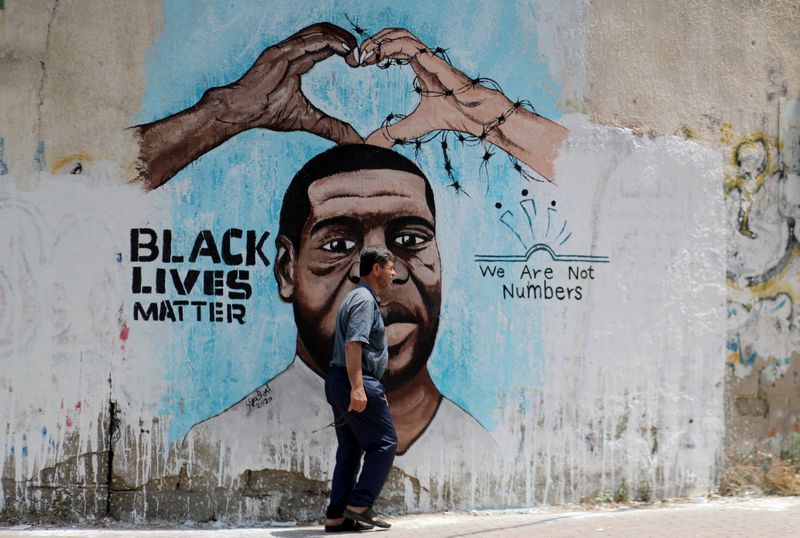JERUSALEM (Reuters) - The killing of an autistic Palestinian by Israeli police has sparked protests by both Palestinians and Israelis, drawing comparisons with the death of African-American George Floyd in the United States.
Iyad al-Halaq, 32, was on his way to volunteer at a special needs school in Jerusalem's Old City on May 30 when police chased him and shot him dead, suspecting him of carrying a weapon.
"The boy surrendered and he lay on the ground like a baby in his mother's womb," Kheiry al-Halaq said of his son, whom police said was found to be unarmed.
"They shed the blood of an innocent young man who did not experience much from this life ... he was one of God's weakest creatures," his mother, Rana al-Halaq, said from her son's bedroom, surrounded by his possessions and a poster of him.
Police are investigating the shooting and two officers have given testimony, a police spokesman said.
Both Floyd, 46, and Halaq were from communities that often complain of police brutality and racism.
Floyd died after a Minneapolis police officer knelt on his neck for nearly nine minutes while detaining him on May 25. He was unarmed and his death has led to protests around the world.
Demonstrations for Halaq have been held in Jerusalem, Tel Aviv and Bethlehem in the occupied West Bank, where protesters lit candles and chanted "Palestinian lives matter", in what they called an act of solidarity with African-Americans.
Palestinian artist Taqi Spateen has painted murals of Floyd and Halaq on a concrete wall Israel built through parts of the West Bank. The painting of Halaq is captioned, in English: "Not only Floyd. Iyad Hallaq too".
"Both men were killed by the arrogance of racism," Spateen said.
Halaq's killing drew condolences from Israeli Prime Minister Benjamin Netanyahu, who called it a "tragedy".
Palestinians have long complained of heavy-handed tactics by police and troops using lethal force in the West Bank and Gaza Strip.
The Israeli rights group B'Tselem says that of the 133 Palestinians killed by Israeli forces in 2019, 56 "were not taking part in hostilities" and 28 were minors.
Salem Barahmeh, a Palestinian rights advocate in the West Bank city of Ramallah, said he believed Israeli police officers might be lightly punished for Halaq's death.

"But a proper charge? I don't have much hope," he said. "It won't be the justice that Iyad al-Halaq deserves."
